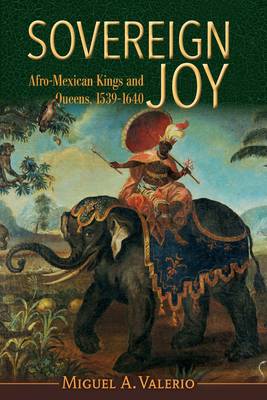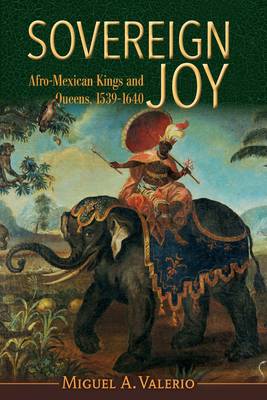
- Afhalen na 1 uur in een winkel met voorraad
- Gratis thuislevering in België vanaf € 30
- Ruim aanbod met 7 miljoen producten
- Afhalen na 1 uur in een winkel met voorraad
- Gratis thuislevering in België vanaf € 30
- Ruim aanbod met 7 miljoen producten
Zoeken
€ 31,45
+ 62 punten
Uitvoering
Omschrijving
Sovereign Joy explores the performance of festive black kings and queens among Afro-Mexicans between 1539 and 1640. This fascinating study illustrates how the first African and Afro-creole people in colonial Mexico transformed their ancestral culture into a shared identity among Afro-Mexicans, with particular focus on how public festival participation expressed their culture and subjectivities, as well as redefined their colonial condition and social standing. By analyzing this hitherto understudied aspect of Afro-Mexican Catholic confraternities in both literary texts and visual culture, Miguel A. Valerio teases out the deeply ambivalent and contradictory meanings behind these public processions and festivities that often re-inscribed structures of race and hierarchy. Were they markers of Catholic subjecthood, and what sort of corporate structures did they create to project standing and respectability? Sovereign Joy examines many of these possibilities, and in the process highlights the central place occupied by Africans and their descendants in colonial culture. Through performance, Afro-Mexicans affirmed their being: the sovereignty of joy, and the joy of sovereignty.
Specificaties
Betrokkenen
- Auteur(s):
- Uitgeverij:
Inhoud
- Aantal bladzijden:
- 282
- Taal:
- Engels
- Reeks:
Eigenschappen
- Productcode (EAN):
- 9781009078207
- Verschijningsdatum:
- 21/09/2023
- Uitvoering:
- Paperback
- Formaat:
- Trade paperback (VS)
- Afmetingen:
- 152 mm x 229 mm
- Gewicht:
- 417 g

Alleen bij Standaard Boekhandel
+ 62 punten op je klantenkaart van Standaard Boekhandel
Beoordelingen
We publiceren alleen reviews die voldoen aan de voorwaarden voor reviews. Bekijk onze voorwaarden voor reviews.











